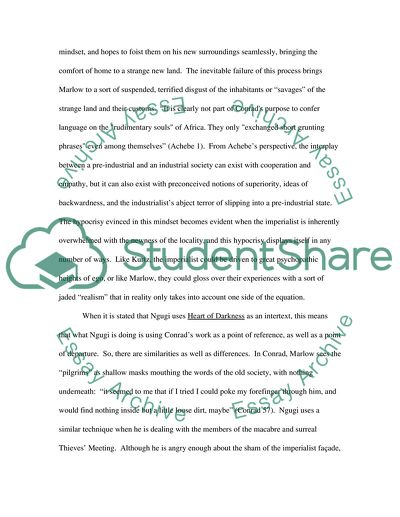Cite this document
(Questions of Racism in Heart of Darkness Admission/Application Essay, n.d.)
Questions of Racism in Heart of Darkness Admission/Application Essay. Retrieved from https://studentshare.org/literature/1722216-orientalism
Questions of Racism in Heart of Darkness Admission/Application Essay. Retrieved from https://studentshare.org/literature/1722216-orientalism
(Questions of Racism in Heart of Darkness Admission/Application Essay)
Questions of Racism in Heart of Darkness Admission/Application Essay. https://studentshare.org/literature/1722216-orientalism.
Questions of Racism in Heart of Darkness Admission/Application Essay. https://studentshare.org/literature/1722216-orientalism.
“Questions of Racism in Heart of Darkness Admission/Application Essay”, n.d. https://studentshare.org/literature/1722216-orientalism.


